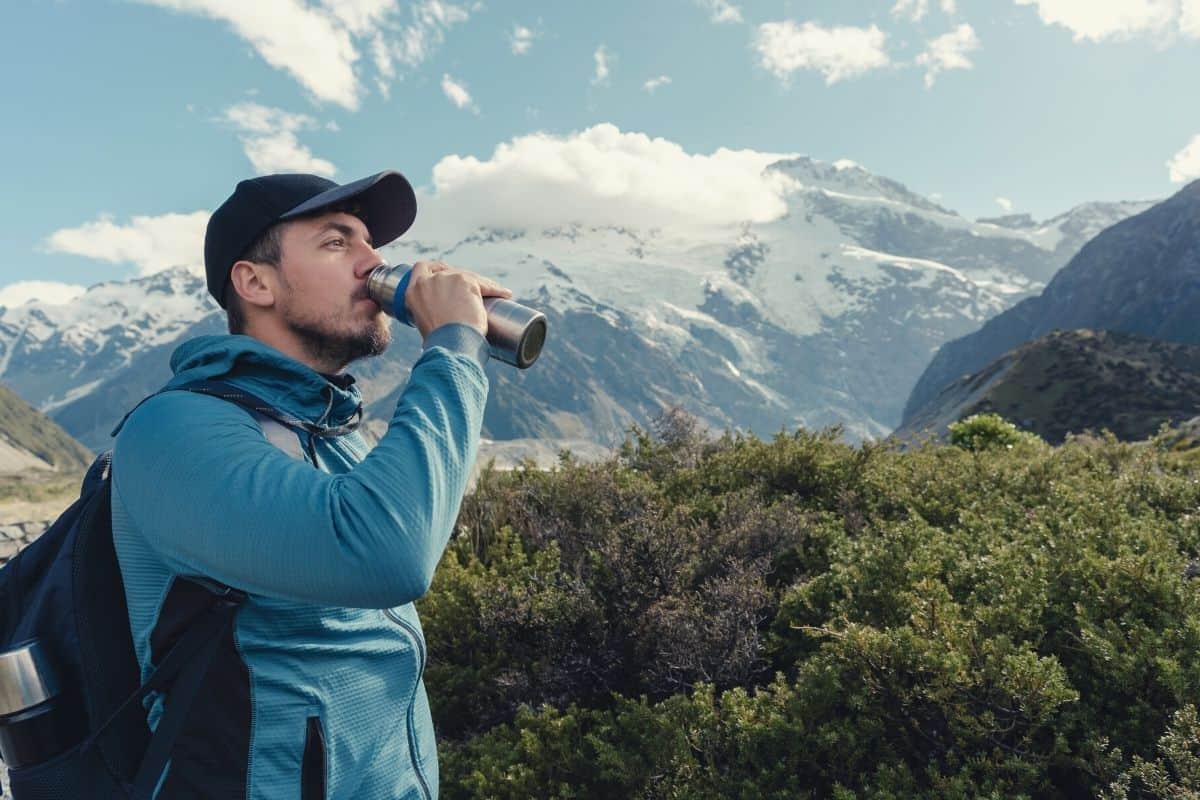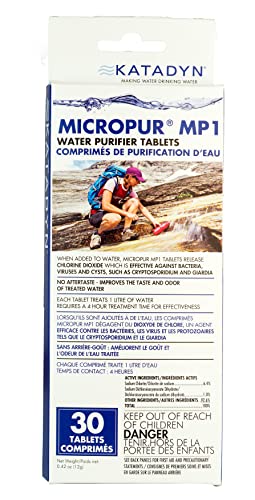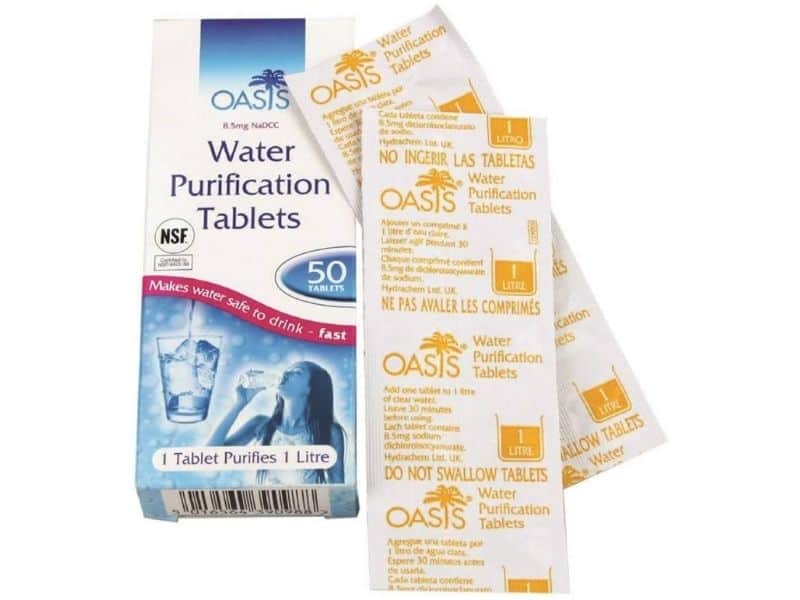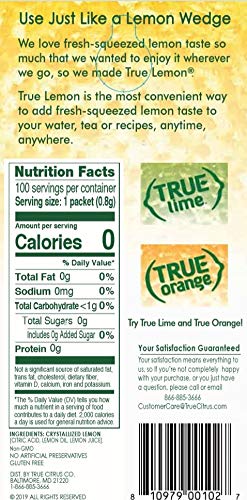All hikers need to ensure they have a reliable source of clean H2O when they head into the wild. This is never more true, of course than if you’re planning on going on long hikes where refilling locations are scarce.
Even if there are many wild water sources on your hiking trails, the chances are the stuff you’ll be scooping into your bottle isn’t safe to drink without treatment. One of the most convenient ways for you to eliminate harmful viruses, bacteria, protozoa, and other tummy-troubling (or even deadly) nasties lurking in wild water is to carry a pack of purification tablets at all times.
In this article, we’ll go over what these tablets are, how they work, and what you should look for when buying. We’ll also review 7 of the best products out there so you can choose the most suitable option for your needs.
Table of Contents
- Top Choices by Category
- Editor’s Choice
- Best Water Purification Tablets: Out Top 7 Picks
- Dangers Of Drinking Water In The Wilderness
- Common Camping Protozoa: Cryptosporidium And Giardia
- Types Of Water Purification Methods: Filters, Purifiers, And Boiling
- Why Do You Need Tablets That Purify Water?
- How Do Water Purification Tablets Work?
- The Iodine Vs Chlorine Dioxide Water Purification Tablets Debate
- Drinking Water In The Wild
- What To Do If The Chemical Taste Bothers You?
- Top Water Treatment Tablets: The Verdict
Top Choices by Category
Taste: AquaMira Water Treatment Drops and P&G Purifier of Water Packets
Effectiveness: Potable Aqua Chlorine Dioxide Tabs and Katadyn Micropur MP1
Processing time: Rothco Chlor-Floc US Military Water Treatment Tablets and Aquatabs Purification Tablets
Editor’s Choice
Potable Aqua Chlorine Dioxide Tablets
Campers looking for quick and convenient chlorine dioxide tablets should check out the Potable Aqua Chlorine Dioxide Tabs
The reasons we chose these as our top pick are simple: they’re easy to use, tasteless, affordable, have a long shelf life, and are effective against crypto, giardia, and a whole host of other bacteria, viruses, cysts, parasites, and protozoa.
Each PA tab treats one liter of water and each pack contains 30 tabs. Given that a pack of thirty costs a mere fraction more than a 6-pack of craft beer (and is way cheaper than a trip to the hospital with serious tummy troubles), that’s great value for money!
These tabs are also as convenient as they come, taking up very little space in your pack and weighing next to nothing. Processing time is a little long (4 hours), but that’s the price you pay for nigh-on failsafe protection.
Bottom Line: Minimal aftertaste, decent wait time, and effective against pretty much anything we might encounter in H2O taken from wild sources.
At a Glance: Quick Recommendations
-
Editor’s Choice:
Potable Aqua Chlorine Dioxide Tablet
“Highly effective, no aftertaste, and is cheaper than competitors.” -
Most Effective:
Katadyn Micropur MP1 Water Purifier Tablet
“A very close second to the Potable Aqua Tabs.” -
Most Convenient:
Aquatabs
“The easiest to use of all the options on our list.” -
Best Taste:
AquaMira Water Treatment Drops
“These drops require a little more work on your part, but they’re effective against most pathogens, bacteria, and viruses, and leave your H2O tasting like, well, H2O.” -
Best Powder:
P&G Purifier of Water Portable Purifier Packets
“These powder sachets are a little bulky, but they’re highly effective, taste-free, and each one treats 2.5 gallons of H2O.” -
Shortest Wait Time:
Rothco Chlor-Floc US Military Water Treatment Tablets
“Used and approved by the US military. Need we say more?” -
Worth a Mention:
Oasis Water Purification Tablets
“Slightly funky aftertaste but a good option for travel in Europe.”
Best Water Purification Tablets: Out Top 7 Picks
Potable Aqua Chlorine Dioxide Tablets
Editor’s ChoiceThe Potable Aqua Chlorine Dioxide tablets win our vote as the best tablets for water purification out there this year.
Truth be told, there’s not much to separate these from the Katahdin Micropur, but the PA does everything the Katahdin do and are a fraction cheaper.
Each pack of the PA contains 30 tablets and can treat one quart of H2O. In terms of effectiveness against water-borne nasties, PA’s Chlorine Dioxide tablets are up there with the best of them, protecting you against bacteria, viruses, cysts, parasites, and the two ailments most commonly experienced by hikers – Cryptosporidium and Giardia lamblia.
The aftertaste in these tabs is minimal. The 30-tab package also weighs next to nothing and takes up very little space. They do, however, have a long wait time of four hours, so you’ll have to bear this in mind when planning your route.
PROs
- Tiny pack size
- 4-year shelf life
- Meet EPA standards
- Can kill bacteria, viruses, cysts, Crypto, and Giardia Lamblia.
- Minimal aftertaste
CONs
- Long wait time
Bottom-Line: The Potable Aqua Tablets are a great option for hikers in any part of the world who are willing to deal with a long wait time in return for virtually fail-safe protection.
Katadyn Micropur MP1 Water Purifier Tablet
Most EffectiveMicropur Tablets by Katadyn use sodium chloride to fight against viruses, bacteria, and parasites. You can choose from either a 20 or 30-pack of tabs and each one will treat one liter of water.
Micropur MP1 tabs can kill all harmful microorganisms, but processing time varies for different viruses, cysts, bacteria, and parasites. To kill all the bacteria, you’ll only have to wait 15 minutes. If you’re concerned about Giardia and Cryptosporidium, then the wait time is 30 minutes. For full effectiveness, the brand recommends waiting 4 hours before drinking.
All of the tablets in these packs are individually sealed to enhance shelf life. As for portability, you’ll only add 0.9 ounces to your backpack taking a full sachet of tablets on the trail with you.
Best of all, Micropur Purification Tablets leave no semblance of an aftertaste, so trump most competitors in the flavor stakes.
PROs
- No chlorinated taste
- Effective against all common viruses, bacteria, and protozoa
- Packets individually wrapped to preserve effectiveness indefinitely
- Only weighs 0.9 ounces
CONs
- Takes 4 hours to fully purify water
Bottom-Line: Although they won’t get rid of dirt, Micropur Purification Tablets are ideal for hikers who want superior protection against pathogens, convenient packaging, and potable water with a decent taste.
Aquatabs
Most ConvenientAquatabs Water Purification tabs are effervescent tablets that use Sodium Dichloroisocyanurate as the main active ingredient. These tablets have been proven effective against Giardia cysts, bacteria, and viruses.
One Aquatab can treat 2 quarts of clean or 0.8 quarts of dirty water, which means you’ll get 60 liters of safe H2O out of a bottle if sourcing from clear streams or creeks.
Aquatabs are commonly used by aid and humanitarian agencies around the globe and are approved by the World Health Organization. While they treat bacteria, viruses, Giardia, and cysts, they won’t treat Crypto, so bear this in mind if hiking in areas where Crypto is a concern.
Processing time with these tabs is just 30 minutes, but you do have to agitate the mixture occasionally in the first ten minutes for the effervescent to take effect and there is a slight aftertaste when drinking.
PROs
- Convenient packaging is good for quick access
- 3-year shelf life
- WHO recommendation and NSF 60 certification
- 1 tab treats 2 quarts
CONs
- Slight aftertaste
- Not proven effective against Cryptosporidium
Bottom-Line: Conveniently, easy to use, and process high quantities in a relatively short time.
AquaMira Water Treatment Drops
Best TasteNote: Aquamira drops replace the Aquamira Water Purification Tablets, which the brand no longer produces.
All AquaMira packages come with two 1-ounce bottles of liquid treatment that can purify 30 gallons of H2O. With chlorine dioxide as the main ingredient, AquaMira treats pathogens like Cryptosporidium and Giardia as well as common bacteria and viruses.
The first AquaMira bottle is called “Part A” and contains chlorine dioxide. The second bottle (“Part B”) has phosphoric acid as its main ingredient. To use this product, you have to place seven drops from both Part A and Part B into a tiny container and let it sit for 5 minutes. The liquid gradually turns yellow, and then you can dump it into a liter of untreated water.
Sound like a lot of hassle? Well, there’s no denying that this treatment requires a little more effort and time than others, but once you’ve done the prep you’ll have taste-free H2O that’s safe from bacteria in just 15 minutes. To make it safe from protozoa, viruses, and other pathogens, however, you’ll have to wait a full 4 hours to be on the safe side.
Both of the bottles you’ll receive in your AquaMira set have a 4-year shelf life and can purify 30 gallons. Put together, these bottles weigh about 2.4 ounces.
PROs
- Made in easy-to-squeeze plastic bottles
- Can get rid of bad odor and taste
- Treats 30 gallons per packet
CONs
- You have to remember to pack two containers instead of one
- Requires a little more work on your part
- Pricey
- Liquid form purification won’t suit everyone
Bottom-Line: Bulky and pricey, but ideal for hikers who want a liquid-based water purification system that leaves no taste and can process huge amounts of clean, safe H2O.
P&G Purifier of Water Portable Purifier Packets
Best PowderIf you want the convenience of a powder purification solution, we highly recommend DayOne Response Purifier Of Water from Procter & Gamble.
This powder purifier uses chlorine hypochlorite as its main ingredient. The standard 6 x 9.75 x 0.5-inch packet contains 12 sachets and has a shelf life of 3 years. Every packet will give you 2.5 gallons of treated water and weighs less than one ounce, so they’re especially suitable for large groups or treating water at camp when higher volumes of H2O are needed.
In addition to disinfecting your H2O, the DayOne Response powder also works as a flocculant, meaning it’s excellent for treating dirty water. It kills bacteria, viruses, cysts, and even certain pollutants.
After dumping your powder into your bottle or pot/pan and shaking it around for a few minutes, you’ll be able to drink within 30 minutes. Pleasingly, there’s no aftertaste to speak of.
As a bonus, P&G donates 120 liters of purified drinking water to people in need with every purchase.
PROs
- Each sachet treats 2.5 gallons
- Chlorine hypochlorite works as a flocculant, odor-neutralizer, and disinfectant
- Relatively short processing time (30 mins.)
CONs
- Bulky packaging
Bottom-Line: A great choice for hikers or campers who need a powder that can handle stream water with soil or silt.
Rothco Chlor-Floc US Military Water Treatment Tablets
Shortest Wait TimeChlor-Floc’s Powder Packets have the high distinction of being the go-to purifier for US Military personnel.
In case you couldn’t guess already, the “floc” in this product’s name has to do with the powder’s flocculation abilities. Once you put your Chlor-Floc into your water it will get to work bringing all the sediment to the bottom of your bottle while the chlorine gets to work killing pathogens. This makes Chlor-Floc ideal for people who are traveling in areas with murky water.
Each Chlor-Floc Packet comes with 30 sachets in a box that can treat 8 gallons of water. Each packet of powder can handle roughly 1 liter.
One of the nicest features of Chlor-Floc’s packets is that they work fast. After stirring in this mixture for about 7 minutes, you only have to let it sit for 15 minutes before you can safely drink it.
You can use one or two tablets for every liter of H2O depending on how dirty it is. Chlor-Floc’s powder can effectively kill Giardia, bacteria, and viruses. One container of Chlor-Floc only weighs 0.8 ounces.
As a bonus, every Chlor-Floc package comes with a camouflaged pouch you can store your sachets in.
One drawback of the Chlor-Floc is that it has a shorter shelf life than other products. Typically you have to use Chlor-Floc a few months to one year after receiving it.
PROs
- Flocculation agent clears water and brings dirt to the bottom
- Purifies within 20-25 minutes
- Easy to pack in the provided pouch
- Trusted by US Military
CONs
- Shorter shelf life
- Chlorine aftertaste
Bottom-Line: Hikers who want fast-acting military-grade purifying tabs with flocculation capabilities can’t go wrong with Chlor-Floc Treatment Packs.
Oasis Water Purification Tablets
Worth a MentionIf you happen to be doing your hiking in Europe or the UK and need to pick up some kind of protection against the various nasties that might be lurking in your H2O, these tabs are a good option.
Straight off the bat, we have to tell you that water purified with these tabs is pretty funky tasting and they wouldn’t normally be featured on our list for this reason. Nevertheless, due to a shortage of other options over the pond and a (slightly weird) overload of iodine tablets, these were the best of the bunch.
These tabs eliminate bacteria, bacterial spores, cysts, algae, fungi, protozoa, and viruses and are certified to NSF Standard 60. Each tab of this water treatment treats 1 liter of H2O and the processing time is 30 minutes. The tabs don’t work as a flocculant, so you’ll have to filter water treated with them to remove grit or other contaminants.
PROs
- Relatively short wait time
- Convenient and easy to use
- Halal Certified and audited against Halal standards
CONs
- Unpleasant taste
Bottom-Line: A good option if you’re traveling in Europe and find yourself short on purification supplies.
Dangers Of Drinking Water In The Wilderness
Hikers who want to go on treks that last a few days or longer will need to rely on natural water sources to keep themselves hydrated. Stuffing bottles of purified water into your backpack can get heavy fast, so the only practical option is to carry a purification system that will allow you to stay hydrated by sourcing H2O from streams, lakes, and creeks.
Let’s start with the bottom line: simply grabbing your canteen, filling up, and drinking straight from the source should never be considered an option. In any wild water source, countless microorganisms could make you very sick (or worse) if not potentially kill you. The most common in hiking contexts are Cryptosporidium and Giardia.
Common Camping Protozoa: Cryptosporidium And Giardia
Two protozoan names all campers should be aware of are Cryptosporidium and Giardia. Both of these pathogens are common in untreated water and usually originate from human or animal feces. If you get either of these protozoa in your system, then you will experience severe gastrointestinal issues like diarrhea or vomiting.
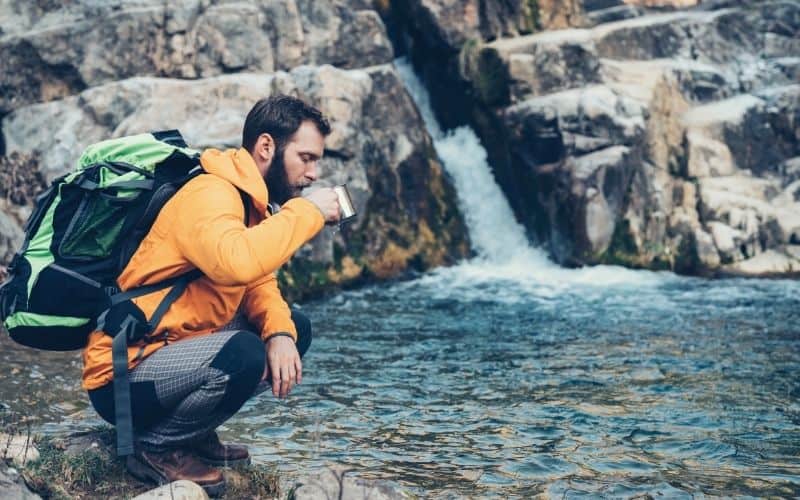
According to the US Centers for Disease Control and Prevention (CDC), most iodine and chlorine tablets are ineffective against Cryptosporidium, but they are somewhat effective against Giardia. Chlorine dioxide, however, is good at killing Cryptosporidium and even better at eliminating Giardia.
If you can’t boil your H2O, the CDC recommends running it through a filter and using a purification tablet to produce the safest drinking water possible.
Types Of Water Purification Methods: Filters, Purifiers, And Boiling
Besides tablets, the two most popular means of purifying wild water include boiling and portable filters.
Boiling is usually considered the most effective method of killing harmful pathogens, but it has its drawbacks as well.
The most obvious drawbacks to relying on boiling water are that it takes time (both to bring it to a boil and then waiting for it to cool down again) and you’ll need to carry a stove and fuel with you. If you are going to boil water just be sure to keep it at a rolling boil for at least one minute to thoroughly kill off harmful pathogens.
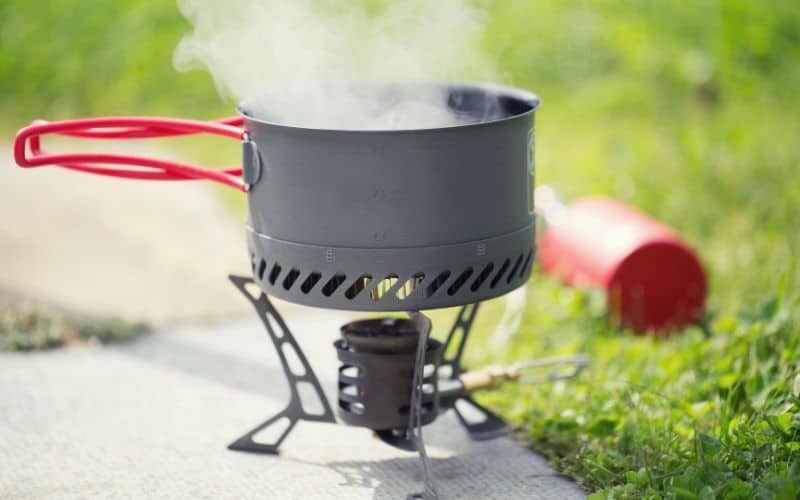
Portable water filters, on the other hand, are devices that use cartridges to capture sediment and water-borne bacteria. These are not to be confused with purifiers, which rely on chemicals or UV lights that can kill off more strains of bacteria and viruses. Some filters come with activated charcoal to help improve the taste.
A few of the major filter and purifier designs include pumps, gravity filters, bottle filters, and squeeze filters. All of these filters have their pros and cons, but the major cons are that you’ll most likely have to do field cleaning and carry a bulkier device in your backpack.
The major cons associated with purification tablets are that they can take a long time to purify water and can leave a strong chemical aftertaste. Iodine treatments can also cause health problems in some people. On the positive side, however, purification tablets are the easiest to pack, easiest to use, and the most inexpensive method of purifying water available.
Why Do You Need Tablets That Purify Water?
A pack of tabs is an easy way to prevent yourself from serious ailments when drinking from untreated sources. Many purification tablets now on the market can get rid of over 99.9 percent of harmful pathogens, and some even have flocculation capabilities. Flocculation means these tablets can draw down sediment to make your water clear.
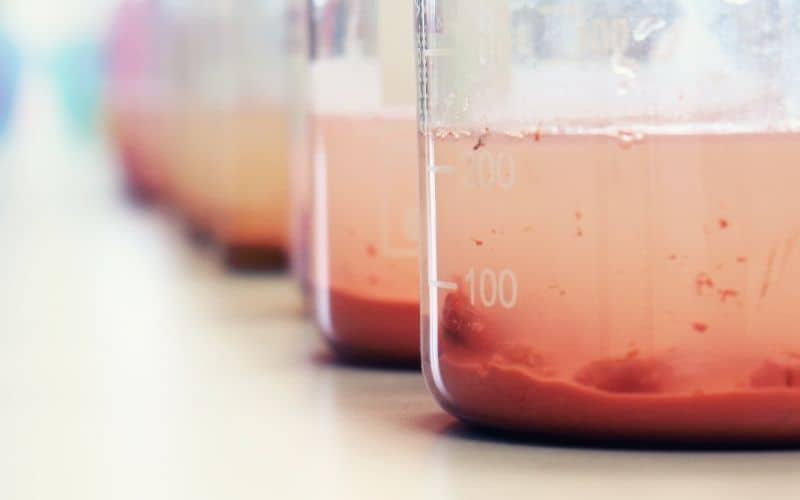
Different tablet brands vary in what they can and cannot eliminate, so be sure to read the manufacturer’s details carefully before purchasing any product. It should be noted, however, that they generally can’t get rid of pollutants and man-made chemicals.
Hikers who are concerned about weight will be happy to know that most packs weigh only a few ounces. One jar/sheet of water purification tablets will certainly take up less space in your backpack than a few full bottles of clean H2O, a stove, or a filter.
How Do Water Purification Tablets Work?
Most brands use one of three chemicals as their active ingredient: iodine, chlorine, or chlorine dioxide. These three chemicals are effective against bacteria and viruses found in wild water. There are many debates in the outdoors community as to which chemical works best, but you have to decide for yourself what will be most effective for your situation.
The Iodine Vs Chlorine Dioxide Water Purification Tablets Debate
Some hikers claim chlorine-based tablets are better than iodine because several tests have proven iodine can’t completely kill the pathogen Cryptosporidium. Also, iodine can cause serious health issues in people who already have thyroid disorders. If you’re going to use iodine tablets, be sure to never use them for longer than a few days in a row.
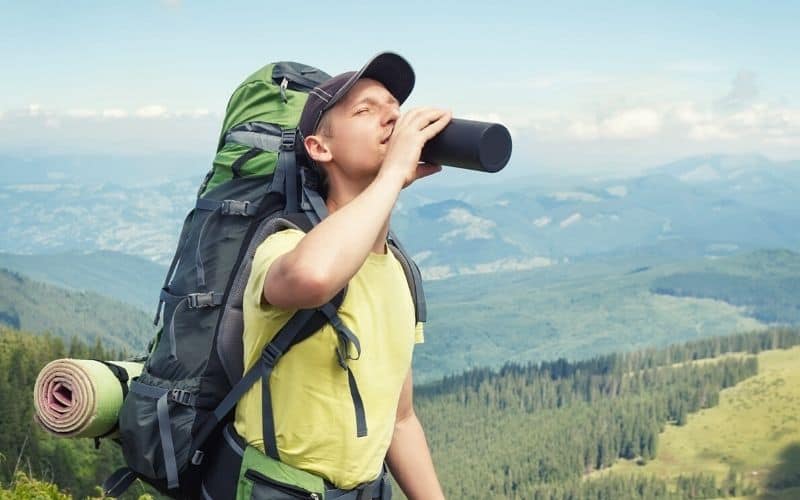
On the flip side, a few campers argue that iodine is a better option than chlorine because of the toxicity associated with heightened chlorine exposure. Some studies suggest people who drink chlorinated H2O as their primary source of hydration have higher risks of cancer.
Drinking Water In The Wild
All the products featured above have slightly different instructions, so it’s important to read the label thoroughly and follow the manufacturer’s suggestions. There are, however, a few general rules that most follow:
- Fill a liter bottle with H2O (preferably taken from a flowing, not stagnant, source)
- Drop one tablet (or two) into your drinking bottle
- Put the lid back on, but leave it slightly open so oxygen can escape the bottle
- Let your bottle sit for 5 minutes
- After 5 minutes, place your forefinger on the top of the loosened cap and shake your bottle for 1-2 minutes
- Lastly, let it sit for at least another 30 minutes before drinking
Again, the above instructions are a standard technique for using water purification tablets. Always follow the specific instructions on your product’s label for the best results.
What To Do If The Chemical Taste Bothers You?
One complaint many campers have about tablet-purified water is the nasty taste. If the taste is a serious issue for you, there are taste-neutralizing tablets or flavored tablets and drops on the market to improve the flavor. Many tablets, however, only work for iodine and contain the chemical Tetraglycine hydroperiodide as an active ingredient.
A few higher-priced brands have odor-fighting chemicals in them. As always, look at the manufacturer’s details to see if your tabs will get rid of the nasty taste or smell associated with iodine or chlorine.
Top Water Treatment Tablets: The Verdict
Just in case you’re still undecided, let’s have a little recap to help you out.
After much testing and deliberation, we believe the best water purification tablets out there are the Potable Aqua Chlorine Dioxide. These tabs are tasteless, highly effective, and offer great value for money.
If you need to process a little more of the wet stuff, then we recommend the AquaMira Treatment Drops. The packaging for these drops is a little bulky and it takes a little time to get the purification process underway, but each pack can treat in the region of 30 gallons of the wet stuff.
So, how did you like our article? If we missed anything or you have any questions, let us know! And if you’d like to share this post with your friends, please do!
